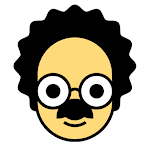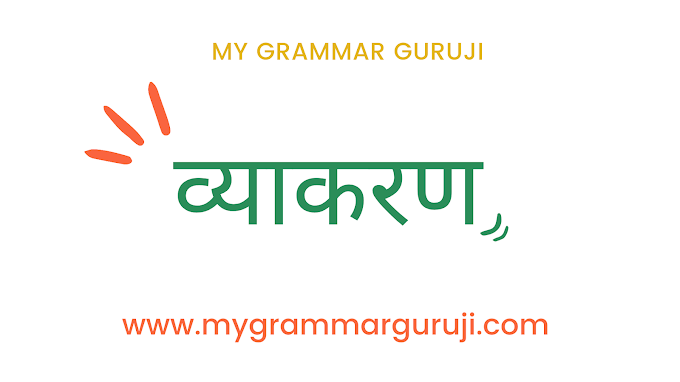What is the Sentence?
A sentence is generally defined as a group of words expressing a thorough idea by giving a statement/order, asking a question, or exclaiming.
(वाक्य को आम तौर पर शब्दों के एक समूह के रूप में परिभाषित किया जाता है जो एक कहकर/ आदेश देकर, या एक प्रश्न पूछकर, या प्रशंसा करके पूरी तरह से विचार व्यक्त करता है)
A sentence is the largest unit of any language. In English, it begins with a Capital letter and ends with a full-stop (.), a question mark (?), or an exclamation mark (!).
(एक वाक्य किसी भी भाषा की सबसे बड़ी इकाई है। अंग्रेजी में, यह एक कैपिटल अक्षर से शुरू होता है और एक पूर्ण-विराम (।), या एक प्रश्न चिह्न (?), या एक विस्मयादिबोधक चिह्न (!) के साथ समाप्त होता है)
Examples:
(1) Those which make statements or assertions; as, Humpty- Dumpty sat on a wall.
(2) Those which ask questions as
- Where do you live?
(3) Those which express commands, requests, or entreaties, as,
- Be quiet.
- Have mercy upon us.
(4) Those which express strong feelings, such as,
- How cold the night is!
- What a shame!.
Ideally, a sentence requires at least one subject and one verb. Sometimes, the subject of a sentence can be hidden, but the verb must be visible and present in the sentence. The verb is called the heart of a sentence.
(आदर्श रूप में, एक वाक्य में कम से कम एक विषय और एक क्रिया की आवश्यकता होती है। कभी-कभी किसी वाक्य के विषय को छिपाया जा सकता है, लेकिन क्रिया का वाक्य में मौजूद होना चाहिए। क्रिया को वाक्य का दिल कहा जाता है)
Types of Sentences
Structurally, sentences are of four types:
- Simple sentence
- Compound sentence
- Complex sentence, and
- Compound-complex sentence
What is a Simple Sentence?
A simple sentence must have an independent clause (a single verb) that cannot take another clause.
Example:
- I always wanted to become a writer. (One clause – one verb)
What is a Compound Sentence?
A compound sentence must have more than one independent clause with no dependent clauses. Some specific conjunctions, punctuation, or both are used to join together these clauses.
Example:
- I always wanted to become a writer, and she wanted to become a doctor. (Two independent clauses – two verbs)
What is a Complex Sentence?
A complex sentence also has more than one clause, but one must be an independent clause, and the other/others must be (a) dependent clause(es). There are also some particular connectors for the clauses of a complex sentence to be connected.
Example:
- I know that you always wanted to be a writer. (Here, a dependent clause is followed by a connector and an independent clause. The other way around is also possible.)
What is a Compound-Complex Sentence?
A compound-complex sentence (or complex–compound sentence) is a mixture of the features of compound and complex sentences in one sentence. So, it must contain at least two independent clauses and at least one dependent clause.
Example:
- I know you always wanted to become a writer, but I always wanted to become a doctor. (Here, one dependent clause is followed by a complex connector and two independent clauses with a compound conjunction.)
Functionally, sentence types:
- Declarative sentence
- Imperative sentence
- Interrogative sentence, and
- Exclamatory sentence
What is a Declarative Sentence?
An assertive sentence (declarative sentence) simply expresses an opinion/feeling, or makes a statement, or describes things. In other words, it declares something. This type of sentence ends with a period (i.e., a full stop).
Examples:
- I want to be a good cricketer. (a statement)
- I am very happy today. (a feeling)
What is an Imperative Sentence?
We use an imperative sentence to make a request or to give a command. Imperative sentences usually end with a period (i.e., a full stop), but under certain circumstances, it can end with a note of exclamation (i.e., exclamation mark).
Examples:
- Please sit down.
- I need you to sit down now!
What is an Interrogative Sentence?
An interrogative sentence asks a question. Interrogative sentences must end with a note of interrogation (i.e., question mark)
Examples:
- When are you going to submit your assignment?
- Do you know him?
What is an Exclamatory Sentence?
An exclamatory sentence expresses an overflow of emotions. These emotions can be happiness, wonder, sorrow, anger, etc.
Examples:
- What a day it was!
- I cannot believe he would do that!






No comments:
Post a Comment
Thank you! Your comment will prove very useful for us because we shall get to know what you have learned and what you want to learn?